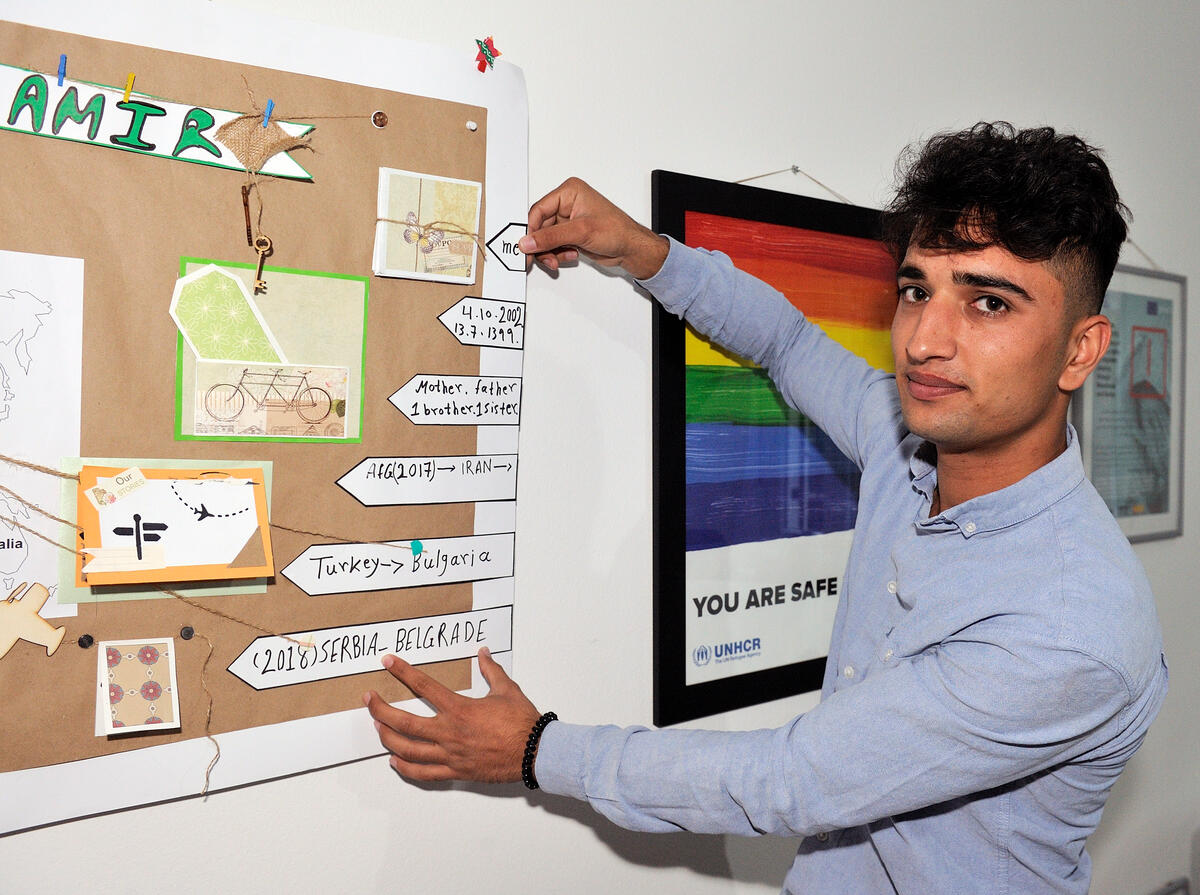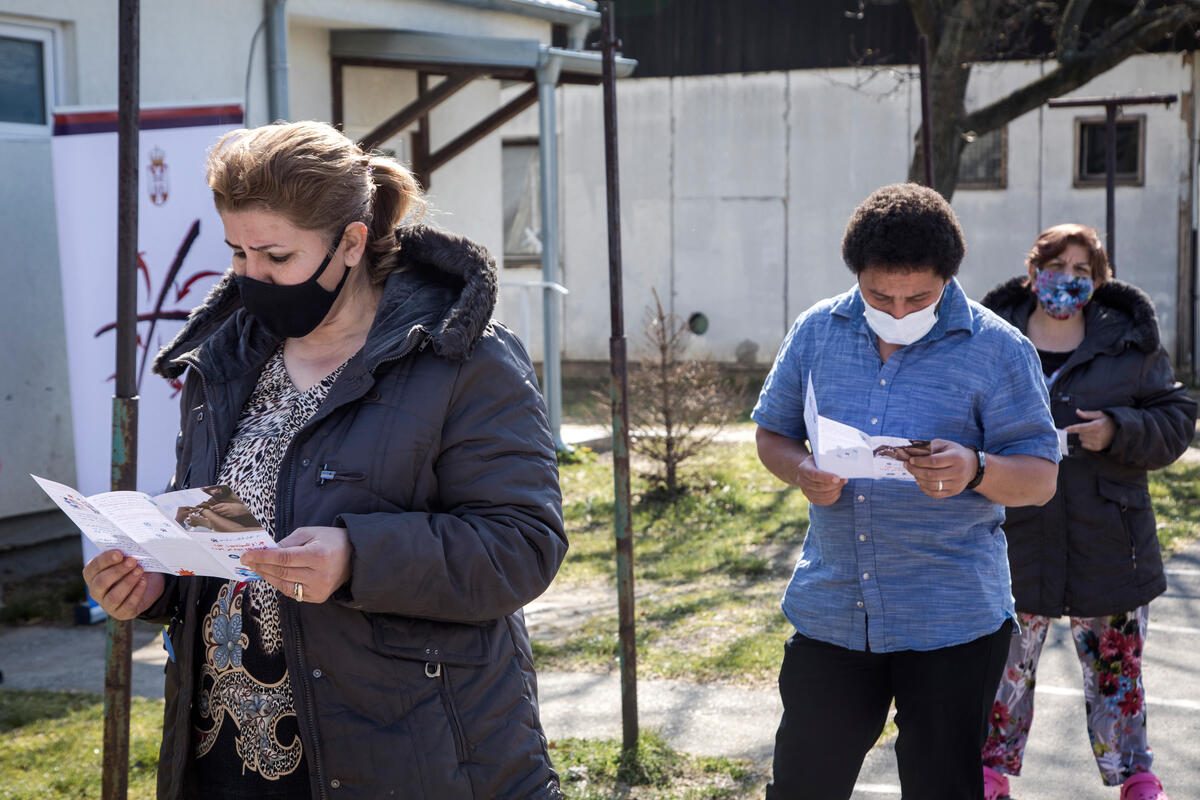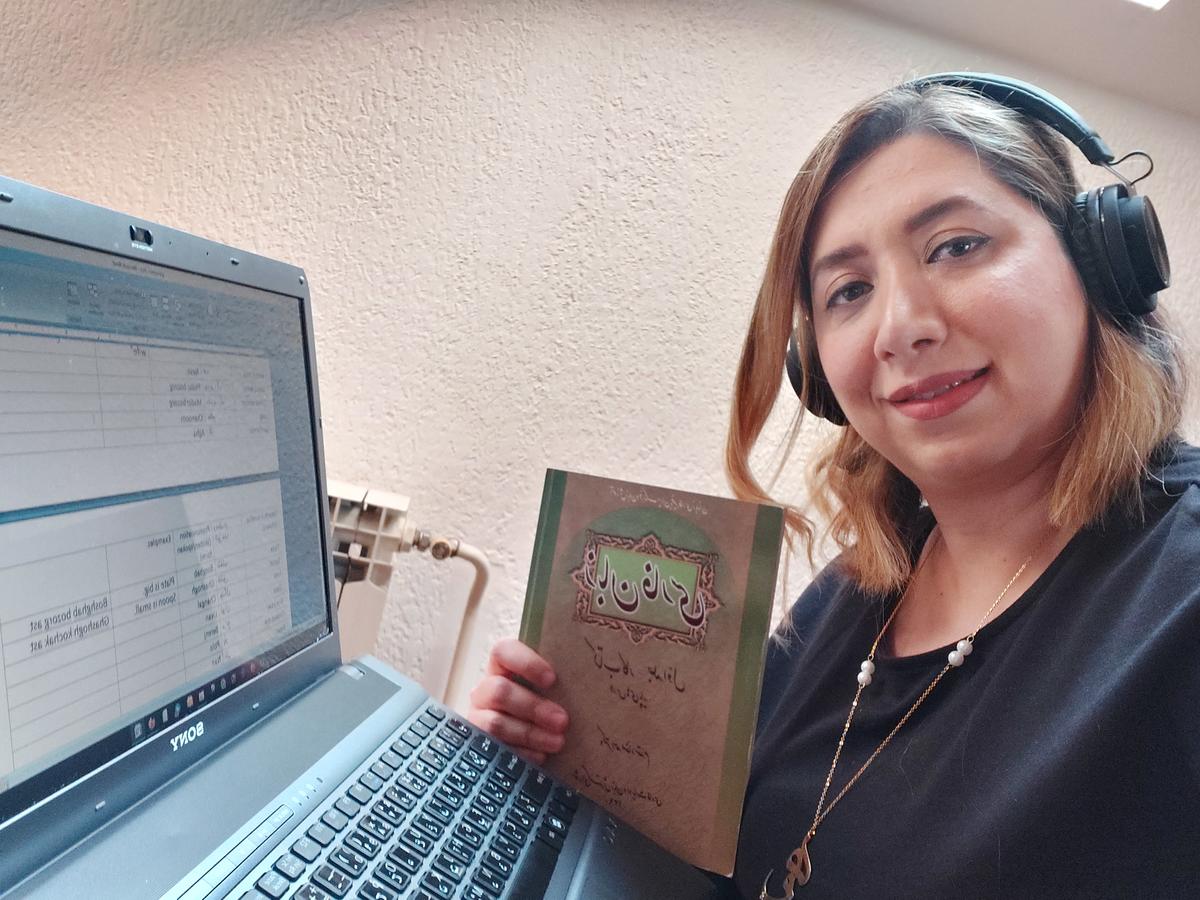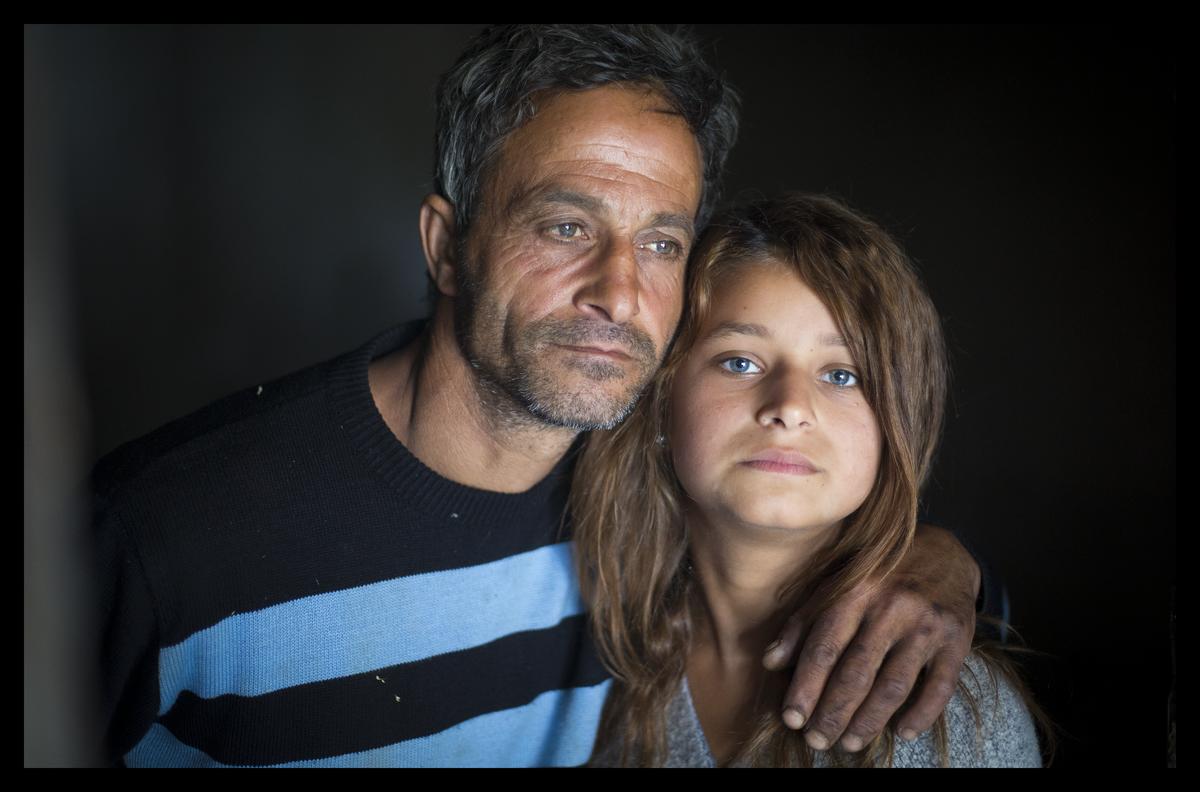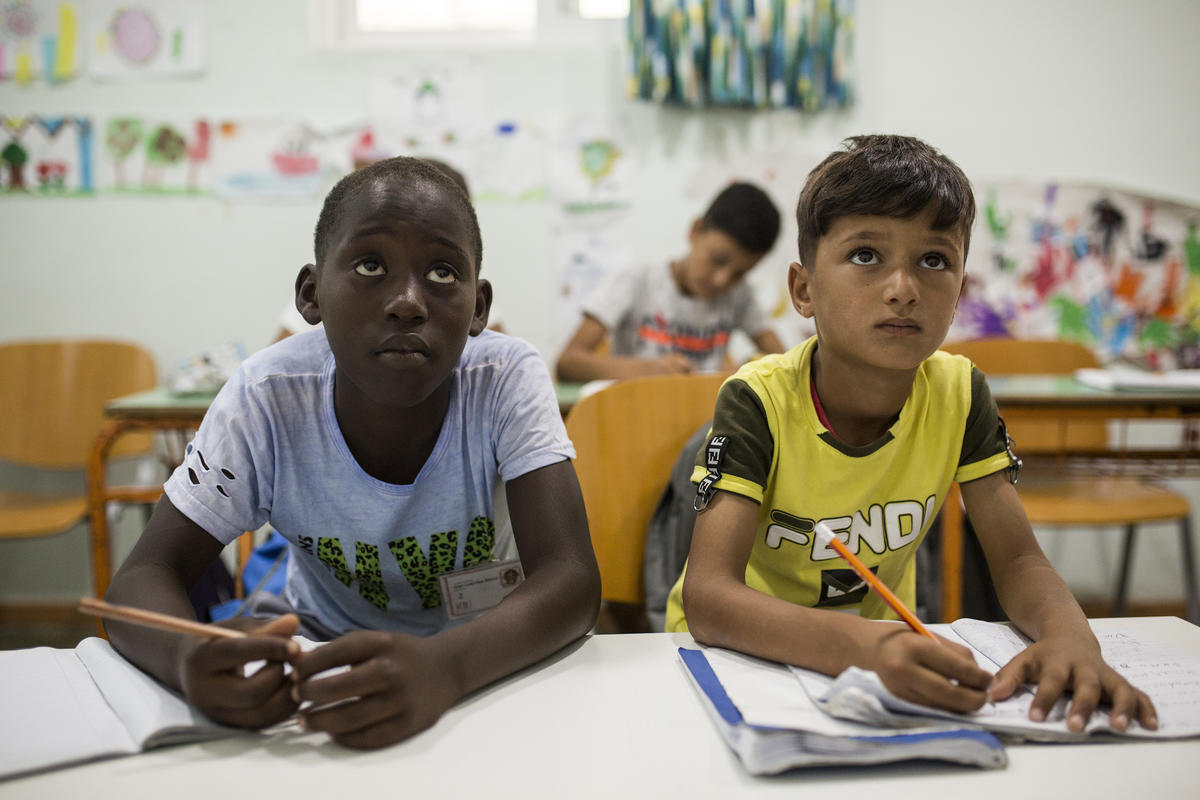Kosovo Crisis Update
Kosovo Crisis Update
Albania
A total of 549 refugees entered the Morini border point over the weekend amid continued fighting between Serbian forces and the Kosovo Liberation Army in Kosovo.
Arrivals on Saturday numbered 392 and on Sunday 157. Despite the artillery blasts, more than 4,300 came last week through Morini, about half of the number were men freed from the Smrekovnica prison near Kosovska Mitrovica.
As the men were being released from two to four weeks' incarceration in cramped cells, hundreds of new detainees were entering the prison compound in northern Kosovo, the arrivals said. The freed men showed marks of severe beatings on their body. They said at least two prisoners were executed and young men were sexually abused. The reports could not be confirmed independently.
Two mortar rounds fell near a UNHCR border position Sunday, but no injuries were reported. Aid workers attending to arrivals had to move their border post because of intense clashes over the past week.
More than 15,600 refugees in the Kukes region were moved last week to the south in a continuing operation prompted by security concerns at the Albanian frontier. NATO vehicles have been used in the exercise. Forty-five ailing and elderly refugees and their families unable to travel overland were transported by helicopter to camps in central and southern Albania.
At least two people were killed when errant artillery rounds fell in an Albanian village last week. More than a dozen others were wounded. The shelling from across the border has also prompted around 8,300 Albanian villagers to flee their homes in the Kukes and Has districts, where an increased KLA presence has been reported.
Meanwhile, two telephone exchanges for free use by refugees were installed by BT Worldcom in Kukes town and at the UNHCR-MSF camp. Each caller is given five minutes under the programme to help refugees locate relatives.
A bakery which can turn out 20,000 loaves of bread daily has started operations in Kukes. This will reduce bread deliveries from Shkodra. UNHCR is also attempting to plug gaps in delivery schedules and coverage.
With the onset of summer, the shortage of water in the Kukes region has become more pronounced, but UNHCR has averted threats to cut off supplies to refugees. Before the refugee influx, Kukes had a 24-hour supply, now most households receive water two hours per day. Tankers bring water to refugee sites and preparations are being made to add two wells to the existing system. A water treatment plant is being considered at the Kukes lake.
FYR of Macedonia
More than 1,500 refugees arrived over the past 48 hours in the FYR of Macedonia, but only 11 came through the main border crossing at Blace.
One family told UNHCR they came by car to the border town of Kacanik, where they were told at a Serbian military checkpoint to return to Pristina. However, they managed to proceed on foot to Blace.
They said many people were waiting to leave at the provincial capital, but there were no buses or trains leaving for the Macedonian border. No immediate explanation for the sudden halt in departures was available after almost a week in which 30,000 people were expelled in what had appeared to be a renewed ethnic cleansing campaign.
Among the arrivals over the weekend were a group of 51 former prisoners at Lipljan south of Pristina. They repeated stories of mistreatment in the jampacked Lipljan prison which an earlier group of 61 men held there had told UNHCR.
Most refugees over the weekend came on foot, including more than 200 who travelled for 30 hours through the Kacanik mountains to reach the Macedonian border town of Jazince.
The Macedonian police also reported that at least five people were wounded in a land mine explosion last week on the Serbian side of the border adjacent to Lojane village. One of them was hospitalized at Tetovo and the others were confined in Skopje.
Atrocities were reported to be continuing in Kosovo. One refugee woman said her husband was shot by a sniper while attempting to leave their village two months ago. She said she and her family moved five times and narrated that she witnessed the massacre of 150 people in the northern Kosovo town of Vucitrn, which had a population of about 30,000. She said the city is now empty. Her story could not be verified.
Only 38 refugees volunteered on Saturday to relocate to camps in Korce, Albania. UNHCR has been looking for volunteers to transfer to Albania to ease pressure on the camps in the FYR of Macedonia and make room for new arrivals. Camps at Korce can hold 2,000 refugees and more tents are being erected to accommodate an additional 3,000.
UNHCR staff in Skopje continue to draw up plans for the eventual return of refugees to Kosovo and a programme for winter in the FYR of Macedonia. Consultations are being held with major donors and non-governmental agencies.
Republic of Montenegro
Hundreds of refugees continue to come to Montenegro despite the takeover by Yugoslav forces of border control three weeks ago. Over a four-day period last week, 1,300 people arrived in the area from Kosovo.
UNHCR transported 180 people over the weekend from the border town of Rozaje to Ulcinj in a continuing programme to relocate the arrivals because of security concerns over increased military activity in Rozaje.
The arrivals said lack of food and insecurity prompted them to leave their homes in Kosovo. They also report looting and burning of houses in their villages. Many of the arrivals came from Kosovska Mitrovica region.
UNHCR-IOM Humanitarian Evacuation Programme
Departures under the humanitarian evacuation programme totalled 847 on Saturday and 644 on Sunday, bringing the overall count to 71,883. UNHCR has received offers for 137,000 places in 40 countries for the evacuees - mainly the sick and elderly and family reunification cases.
Destinations over the weekend were Austria, Denmark, Italy, the Netherlands and Norway.




